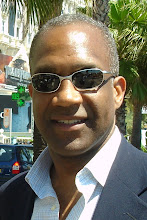Earlier -- on the eve of Veteran's Day -- I had watched the televised memorial ceremony for the 12 Fort Hood Soldiers and one civilian, who were shot to death by a fellow Soldier: Dr. (Major) Nidal Hasan. A few hours later, as I made my way home, I heard a six-plus minute radio interview with the Bethesda chaplain, who freely offered details of conversations that he had with the psychiatrist when both worked at Bethesda. (Click here to see the full transcript of the interview.)
By his own admission, the chaplain and Hasan were not friends, which means that the conversations they shared were either between strangers, or between a person in need and a person perceived to be in a position to help. I was squirming because it seemed to me to be the latter, and it seemed that the chaplain was divulging information that had been entrusted to him in confidence.
I can only begin to appreciate the pressure on Chaplain Hendi, as both a Muslim leader and someone who could actually provide a piece or two more to the puzzle at Fort Hood, to go public. But having first been taken into a person's confidence, as a chaplain then -- and a clergyman today -- I am loathe to trade on that confidence -- even if the public and the investigating authorities demand it.
A decision by a member of the clergy to divulge anything but the most innocuous details of a conversation where the person talking has a reasonable expectation that what he or she is saying will be held in strict confidence is a breach of trust. It was the sense that I was witnessing the shredding of that trust that caused me the most discomfort.
Everyone needs -- and the law recognizes it with protections for clergy -- a safe haven. The perception that chaplains will not regard private conversations as privileged is a tremendous loss, both for the person in need, and the person perceived to be in a position to help.




No comments:
Post a Comment